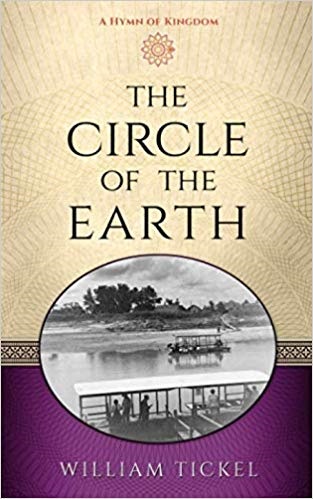 The Circle of the Earth
The Circle of the Earth
Series: Hymns of Kingdom (Book 3)
William Tickel
Paperback: 160 pages
Publisher: Ventris & Bywater LLC (April 23, 2019)
Language: English
ISBN-10: 0988890038
ISBN-13: 978-0988890039
BOOK BLURB: Laredo, Texas, March 1915
The Mexican Revolution is reaching a boiling point, and the minority Anglo population of Texas is concerned that it will extend north of the Rio Grande, and into South Texas, itself.
Thomas Asher is an aging Texas Ranger: tired, infirm, unprepared for retirement, and addicted to laudanum. But the Rangers have made a ghastly mistake, and Asher now finds himself being put to the test at every possible turn, in every possible way: contending with those he loves, those he respects, and, most difficult of all, himself.
The Circle of the Earth is the third book in the Hymns of Kingdom series, which spans the years between 1895-2005. It is also the first one to be released. It is a stand-alone narrative, and does not depend on the other books in the series for context.
REVIEW: Throughout this story the thread of Asher’s faith pulls everything together including the times of his biggest doubts. One of the things he struggles with is his sense of righteousness. When he is helping the old Mexican is he doing it for himself or for the old man. At one point “He even realizes that helping the Mexican would be much easier if there was someone there to admire him for it.”
In that same moment of introspection, he comes to another realization “…that he is thinking of doing good instead of being good, and he instinctively understands that this is somehow backward.”
A main point of conflict in the story is the battle that Asher fights continuously with his need for laudanum. He had injured his back on a previous mission with the Texas rangers and the pain has never gone away. He was prescribed the laudanum for the pain relief, but, as happens too often, people get addicted to the pain medication, and then the vicious circle of need takes over.
The book is written in an omniscient point of view, and it is been a long time since I’ve read a book written in that point of view. Often, it can be off-putting to a reader, because the very technique seems to add a layer between the reader and the story; almost like laying a piece of gauze over a painting and making it more difficult for the viewer to actually see the details of the artwork. But in this case, the omniscient point of view really works especially in the beginning of the story when the setup for the fact of the old Mexican traveling into Texas and his encounter with the Texas Rangers is presented.
That whole setup is done almost like that old game of “secret” we played as kids, whispering something in one person’s ear and it was passed along the line of children. By the time it reached the end of the line, the story was totally different. And so it is in this story that a mere comment by somebody in a saloon about having seen a Mexican on horseback is passed on through to the Rangers; until that lone rider has turned into a band of Mexicans that is coming up through Texas, planning God knows what.
This is a Christian story and a deeply spiritual one, and I really liked the fact that it is never preachy. There are some mystical, profound moments that I believe can speak to people of many faiths, not just Christian. It is about being good. Doing the right thing, no matter the consequences. And honoring everybody we meet.
Pretty good lessons, I’d say.
